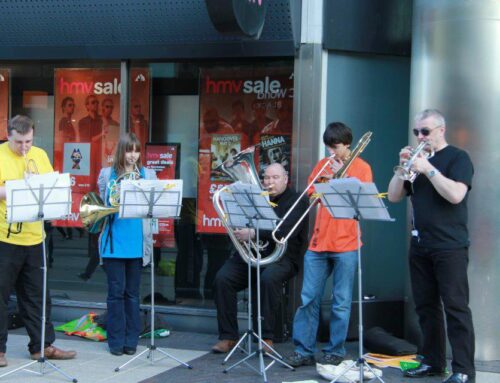Community Orchestra Rehearsal Conduct

Table Of Contents:
- Guiding Principles for Community Orchestra Rehearsal Conduct
- Mastering the Art of Timely Attendance
- Arrive With Enough Time to Set Up
- How Punctuality Impacts the Group’s Morale
- Effective Strategies for Consistent Punctuality
- Equipping Yourself With the Right Materials
- The Essentials for Every Rehearsal
- Organisational Tips for Your Music and Stands
- Maintenance Tips for Your Instrument
- Nurturing a Positive Attitude Towards Feedback
- The Importance of Constructive Criticism
- Receiving Feedback With Grace
- Giving Feedback That Empowers
- Maintaining Focus During Rehearsals
- Strategies for Minimising Distractions
- The Role of Mindfulness in Maintaining Focus
- Encouraging Peer Support to Enhance Concentration
- Demonstrating Respect for Conductor and Peers
- Learning the Conductor’s Expectations
- Supporting Your Fellow Musicians
- The Etiquette of Addressing Questions or Concerns
- Committing to Continuous Improvement
- Setting Personal Goals for Each Rehearsal
- Tracking Progress and Addressing Challenges
- Embracing New Learning Opportunities
- Conclusion
Guiding Principles for Community Orchestra Rehearsal Conduct
Welcome to The People’s Orchestra, where we invite you to work with us and join our vibrant community of musicians. Our ensembles, including The People’s Show Choir, The Rusty Players Orchestra, and The People’s Big Band, offer a diverse range of musical experiences for all skill levels. In this article, we’ll explore the guiding principles for community orchestra rehearsal conduct, ensuring that your time with us is both enjoyable and productive. Keep reading to discover how you can contribute to a harmonious and successful musical environment.
Mastering the Art of Timely Attendance
Punctuality is a cornerstone of successful community orchestra rehearsals and concerts. As a member of The People’s Orchestra, your timely arrival sets the tone for each practice session and performance. Whether you’re attending events at our our ensembles rusty orchestra locations or preparing for a major concert, mastering the art of timely attendance is crucial. This section explores the importance of arriving with ample setup time, how your punctuality affects group morale, and effective strategies to ensure consistent timeliness. By adhering to proper etiquette, you’ll contribute to a more productive and harmonious musical environment. find us work with us ready to begin promptly, and you’ll be well on your way to becoming an exemplary orchestra member.
Arrive With Enough Time to Set Up
Arriving early for orchestra rehearsals gives you ample time to set up your instrument, warm up, and prepare mentally for the music ahead. Whether you play the violin or another instrument in the Rusty Players Orchestra, allow yourself at least 15 minutes before the conductor raises their baton to tune, arrange your sheet music, and settle into your seat. This extra time ensures you’re ready to contribute fully when work with us rehearsal begins, showing respect for your fellow musicians and the art of conducting.
How Punctuality Impacts the Group’s Morale
Your punctuality directly affects the group’s morale and overall performance. When you arrive on time with your string instrument tuned and sheet music ready, you set a positive example for others in our ensembles. This creates an atmosphere of professionalism and respect, allowing the concertmaster and conductor to maintain the intended tempo without interruptions. Remember to bring a pencil for making notes, as this demonstrates your commitment to improvement and attention to detail. Consistent punctuality fosters a sense of unity and purpose within the orchestra, enhancing everyone’s musical experience with us.
- Arrive early to tune your instrument
- Have your sheet music organised
- Bring a pencil for note-taking
- Be ready to start at the designated time
- Show respect for your fellow musicians and conductor
Effective Strategies for Consistent Punctuality
To ensure consistent punctuality as a musician, work with us set multiple reminders on your phone or email calendar for rehearsal times and important performances in our ensembles. Develop a pre-rehearsal routine that includes packing your oboe, sheet music, and other essentials well in advance. Practice good time management by factoring in potential traffic or public transport delays, especially when preparing for a concerto. By cultivating these habits, you’ll establish a pattern of reliable behaviour that benefits both you and your fellow orchestra members in the Rusty Players Orchestra:
| Time Before Rehearsal | Action |
|---|---|
| 1 day | Confirm rehearsal time and location |
| 3 hours | Pack instrument and music |
| 1 hour | Leave for rehearsal |
| 15 minutes | Arrive and begin setup |
Time to gear up for your musical journey! Let’s explore the essential tools that will set you up for success in The People’s Orchestra.
Equipping Yourself With the Right Materials
Ensuring you’re well-equipped for each symphony rehearsal is vital for maintaining rhythm and pitch precision. Whether you’re preparing for an audition or honing your viola skills with the Rusty Players Orchestra, having the right materials at hand allows you to focus on your musical performance. This section covers the essentials you’ll need for every rehearsal with our ensembles, provides organisational tips for your music and stands, and offers valuable maintenance advice for your instrument. By following these guidelines, you’ll be well-prepared to contribute effectively to the orchestra‘s sound and improve your overall musicianship.
The Essentials for Every Rehearsal
To fully participate in our ensembles orchestra rehearsals, you must bring essential items that support your musical performance and respect the ensemble’s culture. Always bring your instrument, music stand, and sheet music, ensuring you’re prepared to play without disruption. Dress appropriately for the occasion, adhering to any specified dress code, and avoid wearing strong perfumes that may distract fellow musicians. Remember, your readiness contributes to the overall harmony of the group and shows respect for the conductor and your peers. Essential items for every rehearsal include:
- Instrument and necessary accessories
- Music stand (if not provided)
- Sheet music and pencil for annotations
- Appropriate attire as per dress code
- Water bottle for hydration
- Tuner and metronome
Organisational Tips for Your Music and Stands
Organise your music and stands to ensure smooth transitions during rehearsals. Keep your sheet music in a sturdy folder or binder, arranged in the order of the programme, to prevent shuffling and maintain focus on intonation. Place your chair and stand at a comfortable height and angle, allowing you to see both your music and the conductor without straining your neck or fingers. Bring a small bag or container to store extra items like a tuner, metronome, and spare clothing, keeping your area tidy and preventing distractions for yourself and our ensembles in the orchestra. Implement these organisational strategies to maximise your efficiency and contribute to a more productive rehearsal environment with the People’s Show Choir and the Rusty Players Orchestra:
- Use a folder or binder for sheet music
- Arrange music in programme order
- Adjust chair and stand for optimal comfort
- Bring a bag for extra items
- Keep your area tidy and organised
Maintenance Tips for Your Instrument
Proper instrument maintenance is crucial for achieving optimal dynamics during rehearsals and performances. Regularly clean and care for your instrument, ensuring it’s in top condition for each practice session with our ensembles. For string instruments, replace worn strings and keep a spare set in your shoe-box sized instrument case. Wind and brass players should clean their instruments thoroughly after each use, paying special attention to mouthpieces and reeds. By maintaining your instrument diligently, you’ll contribute to the overall sound quality of the orchestra and avoid unexpected issues during crucial moments.
Armed with the right tools, you’re ready to face the next musical challenge. Embrace feedback as your compass, guiding you towards improvement and growth.
Nurturing a Positive Attitude Towards Feedback
As a member of The People’s Orchestra, embracing feedback is essential for your growth and the ensemble’s overall improvement. A positive attitude towards constructive criticism fosters a supportive environment where musicians can refine their skills and contribute to the orchestra‘s success. Learning to receive feedback gracefully and offer empowering suggestions to our ensembles are vital skills that enhance the rehearsal experience. By mastering these aspects of communication, you’ll contribute to a collaborative atmosphere that elevates the entire group’s performance.
The Importance of Constructive Criticism
Embracing constructive criticism is crucial for your growth as a musician in our ensembles. When you receive feedback from conductors, section leaders, or fellow musicians from the People’s Big Band, view it as an opportunity to refine your skills and contribute more effectively to the ensemble. By adopting this mindset, you’ll create a supportive environment where everyone can improve together, ultimately enhancing the orchestra’s overall performance.
Receiving Feedback With Grace
Receiving feedback gracefully is a vital skill for any musician in The People’s Orchestra. When a conductor or fellow musician offers suggestions, listen attentively and avoid becoming defensive. Thank them for their input and consider how you can apply their advice to improve your performance. Remember that feedback is not a personal criticism but an opportunity for growth and refinement of your musical abilities.
| Feedback Scenario | Appropriate Response |
|---|---|
| Conductor suggests adjusting your tempo | Acknowledge and make the adjustment |
| Section leader recommends a different bowing technique | Ask for clarification and practise the new technique |
| Fellow musician points out an intonation issue | Express gratitude and focus on tuning |
Giving Feedback That Empowers
When offering feedback to fellow musicians in The People’s Orchestra, focus on providing constructive and empowering suggestions. Frame your comments positively, highlighting specific areas for improvement and offering practical solutions. By delivering feedback in a supportive manner, you’ll contribute to a collaborative atmosphere that encourages growth and enhances the overall performance of the orchestra.
Feedback shapes your musical journey, but focus drives your progress. Let’s explore how to harness your concentration and make every rehearsal count.
Maintaining Focus During Rehearsals

Maintaining focus during rehearsals is crucial for the success of The People’s Orchestra. As a community musician, you play a vital role in creating a productive and harmonious environment. By implementing effective strategies to minimise distractions, practising mindfulness techniques, and fostering peer support, you can significantly enhance your concentration and contribute to the overall quality of the orchestra‘s performance. This section explores practical methods to stay focused, the benefits of mindfulness in musical practice, and how collaborative efforts can improve everyone’s ability to concentrate during rehearsals.
Strategies for Minimising Distractions
To minimise distractions during rehearsals, create a focused environment for yourself and fellow musicians. Silence your mobile phone and keep it out of sight, avoiding the temptation to check notifications. Position yourself to maintain a clear view of the conductor and your music stand, reducing potential visual distractions. Before rehearsal begins, ensure you have all necessary materials within reach to prevent unnecessary movement during practice. Consider these strategies to maintain focus:
- Silence and stow away mobile devices
- Position yourself for optimal visibility
- Organise materials before rehearsal starts
- Arrive early to settle in and mentally prepare
- Use earplugs if background noise is disruptive
The Role of Mindfulness in Maintaining Focus
Practising mindfulness during rehearsals can significantly enhance your focus and overall performance. By cultivating awareness of your breath, posture, and the present moment, you can better concentrate on the music and the conductor’s instructions. This heightened state of attention allows you to respond more effectively to changes in tempo, dynamics, and ensemble cues, ultimately contributing to a more cohesive and polished performance.
Encouraging Peer Support to Enhance Concentration
Foster a supportive environment within your orchestra section to enhance concentration during rehearsals. Collaborate with your peers to create subtle signals for reminding each other to stay focused, such as a gentle tap on the shoulder or a discreet nod. Encourage open communication about concentration challenges and share successful techniques for maintaining attention. By working together, you can create a positive atmosphere that promotes collective focus and improves the overall quality of your rehearsals:
- Develop discreet signals for focus reminders
- Share concentration techniques with section mates
- Offer encouragement and support to struggling peers
- Create a judgement-free zone for discussing focus issues
- Celebrate improvements in collective concentration
Mastering focus sets the stage for harmonious collaboration. Your newfound concentration will shine as we explore how to honour your conductor and fellow musicians.
Demonstrating Respect for Conductor and Peers
Demonstrating respect for your conductor and fellow musicians is paramount in The People’s Orchestra. By understanding and meeting the conductor’s expectations, you create a harmonious environment that fosters musical growth and camaraderie. Supporting your peers not only strengthens the ensemble’s cohesion but also enhances your own performance. Additionally, knowing how to address questions or concerns appropriately ensures smooth rehearsals and maintains a professional atmosphere. As you navigate these aspects of orchestra etiquette, you’ll contribute to a positive and productive musical experience for all involved.
Learning the Conductor’s Expectations
Understanding and meeting your conductor’s expectations is crucial for creating a harmonious and productive rehearsal environment. Pay close attention to their instructions, gestures, and interpretations of the music. Familiarise yourself with their preferred rehearsal techniques and be prepared to adapt your playing style accordingly. By aligning your performance with the conductor’s vision, you’ll contribute to a more cohesive and polished orchestral sound:
| Conductor’s Expectation | Your Response |
|---|---|
| Specific dynamic changes | Follow precisely and mark your score |
| Tempo adjustments | Respond promptly and maintain consistency |
| Articulation requests | Apply immediately and practise at home |
| Section balance | Adjust your volume to blend with others |
Supporting Your Fellow Musicians
Support your fellow musicians in The People’s Orchestra by fostering a collaborative and encouraging environment. Offer assistance to those who may be struggling with a particular passage, and be open to receiving help when you face challenges. Celebrate your peers’ achievements and provide constructive feedback when appropriate, always maintaining a positive and supportive tone.
The Etiquette of Addressing Questions or Concerns
When addressing questions or concerns during orchestra rehearsals, follow proper etiquette to maintain a respectful and productive atmosphere. Wait for appropriate breaks in the rehearsal to raise your hand or approach the conductor privately. If your query pertains to a specific section, consult your section leader first before bringing it to the conductor’s attention. Remember to phrase your questions or concerns politely and concisely, focusing on constructive solutions rather than complaints. By adhering to these guidelines, you’ll contribute to a smooth rehearsal process and demonstrate respect for your conductor and fellow musicians:
- Wait for appropriate breaks to raise questions
- Consult section leaders for section-specific issues
- Approach the conductor privately when necessary
- Phrase queries politely and concisely
- Focus on constructive solutions
Your musical journey doesn’t end with mastering respect. Embrace the challenge of continuous improvement to elevate your skills and push your boundaries.
Committing to Continuous Improvement
Committing to continuous improvement is essential for your growth as a musician in The People’s Orchestra. By setting personal goals for each rehearsal, tracking your progress, and embracing new learning opportunities, you’ll enhance your skills and contribute more effectively to the ensemble. This approach not only benefits your individual performance but also elevates the overall quality of the orchestra. As you develop a mindset of ongoing improvement, you’ll find yourself more engaged in rehearsals and better prepared for performances, ultimately enriching your musical journey with The People’s Orchestra.
Setting Personal Goals for Each Rehearsal
Set specific, achievable goals for each rehearsal to maximise your musical growth within The People’s Orchestra. Before each session, identify one or two areas you want to improve, such as mastering a challenging passage, refining your articulation, or enhancing your sight-reading skills. By focusing on these targeted objectives, you’ll maintain motivation and track your progress more effectively, contributing to your overall development as a musician.
Tracking Progress and Addressing Challenges
Track your progress in The People’s Orchestra by maintaining a practice journal. Record your personal goals, achievements, and areas for improvement after each rehearsal. Use this journal to identify recurring challenges and develop strategies to overcome them. Regularly review your notes to gauge your growth and adjust your focus as needed:
| Date | Goal | Achievement | Challenge | Strategy |
|---|---|---|---|---|
| 15/05/2023 | Improve intonation | Mastered difficult passage | Maintaining tempo | Practice with metronome |
| 22/05/2023 | Enhance dynamics | Improved crescendos | Blending with section | Listen closely to neighbours |
| 29/05/2023 | Refine articulation | Clearer staccato notes | Consistent bowing | Mirror section leader |
Embracing New Learning Opportunities
Embrace new learning opportunities within The People’s Orchestra to expand your musical horizons and enhance your skills. Attend workshops, masterclasses, or guest lectures offered by the orchestra to gain fresh perspectives and techniques. Consider cross-training on a secondary instrument or exploring different musical genres to broaden your musical understanding and versatility.
Conclusion
Adhering to guiding principles for community orchestra rehearsal conduct fosters a harmonious and productive musical environment. By mastering punctuality, equipping yourself properly, embracing feedback, maintaining focus, and demonstrating respect, you contribute to the overall success of The People’s Orchestra. These principles not only enhance individual performance but also strengthen the ensemble’s cohesion and elevate the quality of rehearsals and concerts. Committing to continuous improvement through goal-setting and embracing new learning opportunities ensures your ongoing growth as a musician and enriches your experience within the orchestra.






